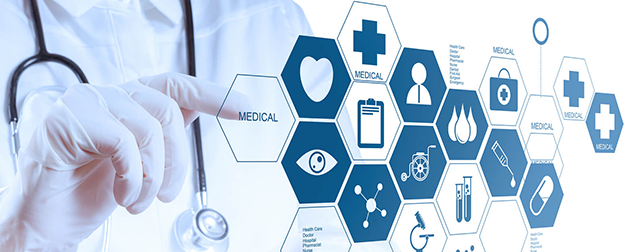Artificial Intelligence (AI) and machine learning have taken the healthcare industry by storm. They aren’t just illusional tech any more, they are practical tools that can help organizations improve their service, optimize the standard of care, reduce risk, and generate more revenue. Nearly all the big companies in the healthcare arena have embraced the technology.
For people, smartbands and smartwatches can help them stay fit by tracking their health and activity level, calorie count, nutrient intake, sleep cycle and more.
With a market anticipated to grow to $27.11 billion by 2023, it’s apparent that remote monitoring and control will illustrate the future of healthcare. Here we present some of the important ways AI and machine learning is already helping, or will help the future healthcare industry.
Read more Kessler Foundation and Virtualwear Team Up to Improve Recovery Outcomes in Stroke Patients
Curing and Caring
When patients visit clinics or meet doctors face-to-face they commonly demand treatment for whatever the condition they may be suffering from without maintaining relationship with caregivers in between visits. That may change in the near future with 24/7 doctor/patient connection. With continuously receiving data, doctors and caregivers will be able to view and validate general wellbeing, and pinpoint illnesses and other irregularities, even before the folks under their care become aware of them.
Detecting Alzheimer’s disease
There is no single test that diagnose Alzheimer’s disease. While doctors can almost always be certain if a person has dementia, it may be difficult to determine the exact cause. Diagnosing Alzheimer’s requires careful medical evaluation. But, with AI-enabled robots Alzheimer’s can be diagnosed in less than a minute with about 82% accuracy. The AI systems can deal with the stretch of pauses between words, over simplistic descriptions, any leaning towards pronouns over proper nouns, and differences in repetitiveness and amplitude. These factors are hard for human listeners to detect with high accuracy levels, but easy for AI systems as they are impartial and quantifiable in their investigation.
Read more MC10 Receives its First FDA Approval for the BioStamp nPoint System
Diagnosing Cancer
Traditional cancer diagnosing methods are magnetic resonance imaging (MRI), computed tomography (CT), X-ray, and ultrasonography. Unfortunately, these methods cannot accurately diagnose many cancers. Stanford’s AI-enabled diagnostic algorithm has been shown to be just as effective at diagnosing possible skin cancers from images as a team of 21 board-certified dermatologists. Enlitic, a startup, is using deep learning to detect lung cancer nodules in CT images, and their algorithm is 50% more precise than a team of expert thoracic radiologists.
Robot-Assisted Surgery
AI-enabled robots can improve and steer the accuracy of the surgical instrument by combining real-time operating metrics, information from surgical experiences, and data from pre-op medical records. These advances by AI robots has reduced hospital stay by 21%, according to Accenture.
Conclusion
Machine learning and AI will back experience-based improvement, with medical analysis and assurance boosting in efficacy and accuracy with each ensuing diagnosis. More money is pouring into AI-enabled applications in the healthcare industry because they generate more revenue. And that’s only the beginning.













